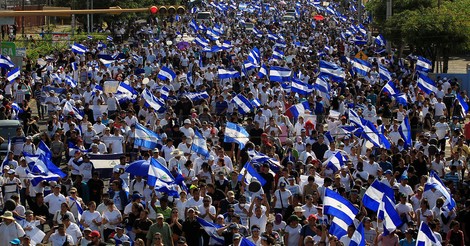Your podcast discovery platform
Curious minds select the most fascinating podcasts from around the world. Discover hand-piqd audio recommendations on your favorite topics.

piqer for: Globalization and politics Global finds
Luis BARRUETO is a journalist from Guatemala. Studied business and finance journalism at Aarhus University in Denmark and City University London.
Nicaragua: As Protests Erupt, Ortega's Strong Grip On Power Loosens
Protesters took to the streets in Nicaragua in recent days, after President Daniel Ortega announced an overhaul of public pensions in which citizens would pay more to receive less benefits. Tensions rose as a heavy-handed government response led to around 34 civilian deaths. While renewed calls for dialogue led to an apparent subsiding of the protests, the movement has grown into a broader show of discontent for Ortega's long reign, and has become the biggest uprising since the end of the civil war in 1990.
The demonstrations "represent a national rejection of President Daniel Ortega’s blatant aspiration to perpetuate himself and his family in power at any cost," as Mateo Jarquín Chamorro explains in a New York Times op-ed. Last November, Ortega won a third consecutive term in office in an election process that did not allow for outside observers, called a 'farce' by many of the President's critics.
"The people on the streets have shown that their indifference has come to an end. The government has been unable to stop them from tearing down the ubiquitous propaganda billboards and some of the garish, tin-metal 'trees of life' erected on hundreds of streets and roundabouts by the first lady as symbols of her government’s supposedly divine mandate. Nicaragua will never be the same again," explains the author, who is the grandson of a civic leader murdered by the country’s regime in 1978, Pedro Joaquín Chamorro.
Ortega's attempt at establishing a cult of personality and authoritarian government was in recent decades enabled by the quiet acquiescence of the private sector and the Catholic church, but he lost both sectors as allies as he repressed demonstrators. Ortega used to rely on the patronage of oil-booming Venezuela under Hugo Chavez, as The Economist explains, but this is no longer an option at present.
Ortega is cornered. And as he's set a precedent for his fellow authoritarians in the region, this is a good thing. Nicaraguans hope for change.
